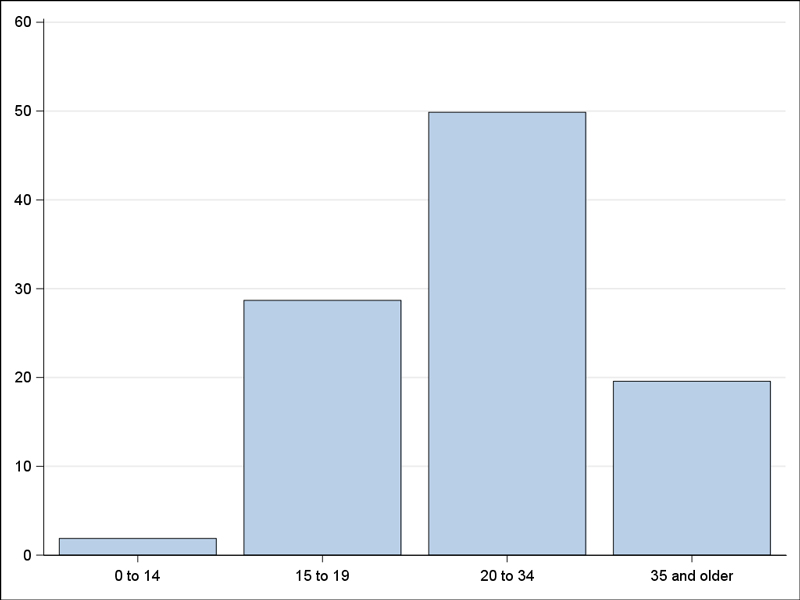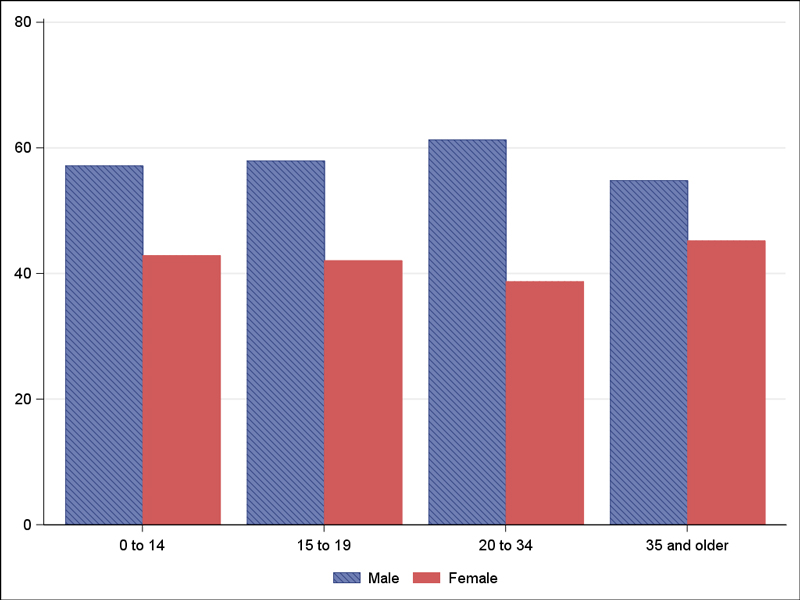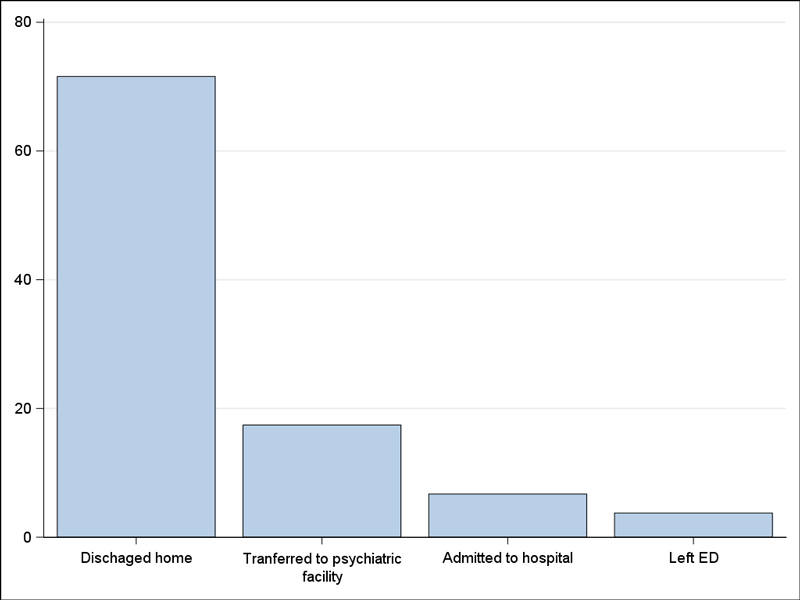
Focused Report - Cannabis-Related Emergency Department Visits
Release date: March 2018
Cannabis will become legal for recreational use in Durham Region beginning in 2018. Cannabis use can negatively affect health. Not known is how this change in policy will impact the community. Building health promotion messages requires understanding the extent of cannabis use and the traits of people who use it. This summary describes the impact and characteristics of cannabis use in the community, by reviewing emergency department (ED) visits related to its use in 2016.
Emergency department visits related to cannabis increasing
There were 373 ED visits related to cannabis use in 2016. The number of visits has almost doubled from 2007, where 125 visits were reported. Cannabis use was listed as the main problem on 127 of the 373 visits (34 per cent) recorded in 2016. The remaining 246 visits listed cannabis as an additional factor.
Cannabis poisoning the most common reason for visiting the emergency department
Cannabis poisoning was the main problem for 12 per cent of ED visits related to cannabis use. The majority of these involved accidental consumption (58 per cent). The remaining poisoning incidents involved self-harm or undetermined intent. Other reasons listed as the main problem include harmful cannabis use (10 per cent), cannabis intoxication (5 per cent) and psychotic disorder (4 per cent).
Largest share of cannabis-related emergency department visits seen in Oshawa residents
In 2016, more than one-third (37 per cent) of cannabis-related ED visits occurred to residents of Oshawa; 16 per cent to residents of Whitby; and 13 per cent to resident of Ajax. Together these three municipalities accounted for two-thirds (67 per cent) of cannabis-related ED visits. The remaining municipalities accounted for 31 per cent of cannabis-related ED visits.
| Table 1 | ||||||||||||||||||||||||||||||||||||||||
|
||||||||||||||||||||||||||||||||||||||||
Young adults most likely to visit an emergency department due to cannabis use
Half of ED visits related to cannabis use (50 per cent) occurred in the 20 to 34 year age group. The youngest person seen in the ED was less than one year old and the oldest was 68. Half of visits occurred to patients under 22 years and half to patients over 22. Youth between the ages of 15 and 19 accounted for less than one-third (29 per cent) of ED visits related to cannabis use.
Figure 1. Per cent of emergency department visits related to cannabis use, by age group, Durham Region, 2016

| Data table for figure 1 | ||||||||||||
|
||||||||||||
Majority of emergency department visits due to cannabis use seen in Males
Males accounted for three out of five (59 per cent) ED visits related to cannabis use. Females accounted for the remaining 41 per cent of visits. The difference between males and females was largest for adults 20 to 34 years (23 percentage points); similar for children 0 to 14 (14 percentage points) and young adults 15 to 19 (16 percentage points); and smallest for adults 35 years and older (10 percentage points).
Figure 2. Per cent of emergency department visits related to cannabis, by age group and sex, Durham Region, 2016

| Data table for figure 2 | ||||||||||||||||||||||||||||||
|
||||||||||||||||||||||||||||||
Most emergency department visits related to cannabis use do not result in additional care
The most common end result for cannabis-related ED visits was a discharge home (72 per cent). In a smaller number of visits (four per cent), patients left the ED before treatment was completed. The remaining 24 per cent resulted in a hospitalization or transfer to another facility. Among those transferred, three-quarters (73 per cent) were sent to a psychiatric facility.
Figure 3. Per cent of emergency department visits related to cannabis, by visit outcome, Durham Region, 2016

| Data table for figure 3 | ||||||||||||
|
||||||||||||
Data Notes
All data come from: Ambulatory visits, IntelliHealth Ontario, Ontario Ministry of Health and Long-Term Care.
Cannabis-related ED visits were selected using the following ICD-10-CA codes:
- T40.7 -- Cannabis poisoning
- F12.0 to F12.9 -- Cannabis use disorders
A unique visit number was used to select ED visits where at least one of the above codes was captured. This analysis did not distinguish between prescription and illegal cannabis use.
Visit the Canadian Institute for Health Information for more on emergency department data.
Related information
- Cannabis-Related Emergency Department Visits at a Glance
- Statistics Canada’s Cannabis Stats Hub
Contact Us




